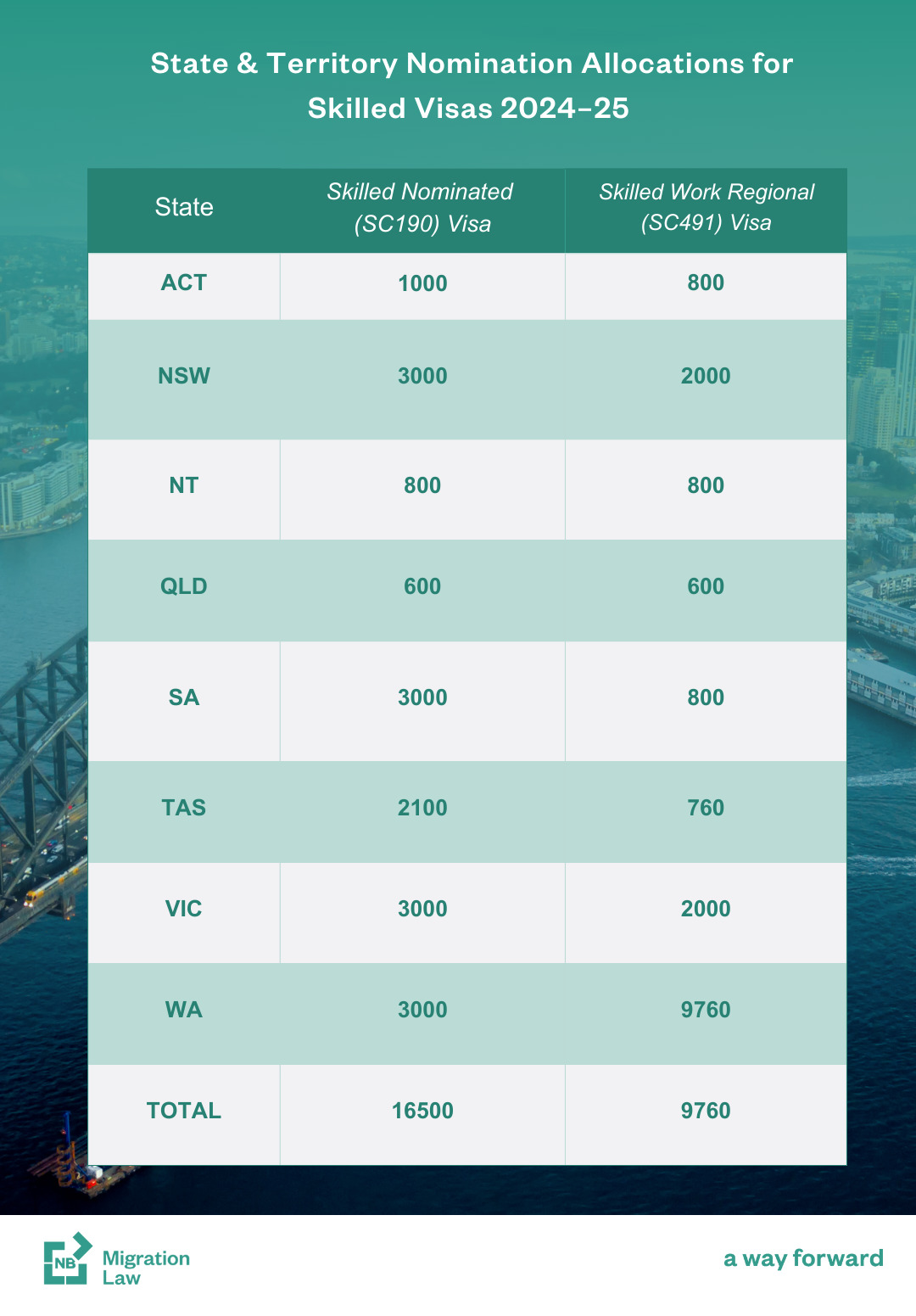As Australia continues to attract skilled migrants to support its growing economy, the 2024–25 state and territory nomination allocations have been released. These allocations play a crucial role in the migration process, defining how many new primary applicants each state and territory can nominate for skilled visas in the upcoming program year. This article provides a comprehensive overview of the nomination allocations for the 2024–25 Migration Program and outlines some key Australian legalities to consider.

2024–25 State and Territory Nomination Allocations
Nomination allocations indicate the number of new primary applicants a state or territory can nominate for skilled visas. These figures are significant as they guide the immigration process for skilled workers seeking to live and work in Australia. However, it's important to note that nomination allocations do not represent the total number of visa applicants in these categories, nor do they limit the number of visas that can be granted.
Here's a detailed breakdown of the nomination allocations for each state and territory for the 2024–25 Migration Program:
In total, there are 16,500 places allocated for the Skilled Nominated (Subclass 190) visa and 9,760 for the Skilled Work Regional (Subclass 491) visa across Australia.

Key Australian Legalities to Consider
While the nomination allocations provide a roadmap for migration, it is essential to be aware of several Australian legalities that can impact your visa application process:
Eligibility Criteria: Each state and territory has specific eligibility requirements for skilled nominations. These criteria may include occupation lists, skills assessments, and residency requirements. It's crucial to ensure that you meet the specific criteria of the state or territory you are applying to.
Visa Conditions: Once granted, skilled visas come with certain conditions. For instance, Subclass 190 visas typically require you to live and work in the nominating state or territory, while Subclass 491 visas often require you to live and work in a regional area.
State and Territory Laws: Different states and territories may have unique laws and regulations affecting migrants. This includes employment laws, tenancy rights, and local government regulations. Understanding these local laws is essential to ensure compliance and a smooth transition to living in Australia.
Changes in Immigration Policy: Immigration policies can change frequently. Staying informed about any updates or amendments to visa regulations is important to avoid any issues with your application or visa status.
Legal Assistance: Navigating the visa application process can be complex. Seeking professional legal assistance can help you understand the requirements, prepare your application, and address any legal issues that may arise.
Book Your Complimentary Consultation with NB Migration
If you are considering applying for a skilled visa and need expert advice on navigating the nomination process and understanding Australian legalities, our team at NB Migration is here to help. We offer complimentary consultations to discuss your visa options and guide you through the application process.
To book your free consultation, contact us today at NB Migration and take the first step towards your successful migration to Australia. Our experienced team is committed to providing personalised support to ensure your visa application meets all the requirements and sets you up for success in your new life Down Under.
Feel free to contact us for further assistance or if you have any questions about your visa application. We look forward to helping you achieve your migration goals.
